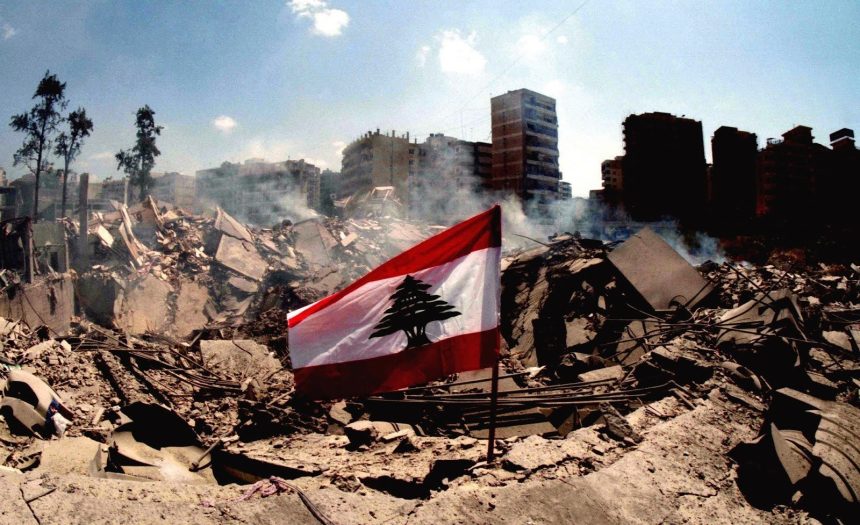In November, Lebanon faced a deepening crisis as the war between Israel and Hezbollah escalated, resulting in thousands of casualties, significant displacement, and widespread destruction. A fragile ceasefire on November 27 brought an end to the 13-month conflict that began in October 2023, but the economic fallout continues to reverberate across the country. Pressures on Lebanon’s government to increase spending amplified to address the economic toll of the war, the displacement crisis, and the extensive destruction of infrastructure and assets. These pressures coincide with deliberations over the 2025 budget and a rare government surplus held in a special account at the central bank—a first in four decades.
The cost of the war has become a contentious topic, with estimates ranging from $1 billion to as much as $30 billion. This wide range reflects uncertainty over the full scope of the damage and its long-term implications. LIMS has provided a clearer perspective on the economic losses, estimating the war’s cost around $10 billion—equivalent to approximately 50% of Lebanon’s GDP. Lower-end estimates of $1–2 billion focus narrowly on a single year’s economic contraction, neglecting the destruction of assets and the broader, long-term repercussions. The projected multi-year decline in growth suggests additional losses of $2–4 billion, while capital losses—including destroyed infrastructure, over 100,000 residential units, commercial and industrial buildings, and agricultural lands—amount to $2–3 billion. Humanitarian needs, including shelter, food, and healthcare for displaced populations, add another $1–2 billion to the economic toll.
Rebuilding Lebanon presents daunting challenges. Roads, electricity grids, and communication systems have been severely damaged, and post-conflict reconstruction will require significant investment. Despite the scale of the crisis, LIMS has cautioned against the use of fiscal surplus held by the central bank to fund government spending aimed at addressing the war’s fallout. LIMS outlined three key concerns: (1) Corruption Risks: Lebanon’s pervasive corruption and lack of reforms cast doubt on whether government spending would effectively reach its intended targets. (2) Negative Net Position: The central bank remains the largest holder of Lebanese government bonds, with the government’s liabilities to the central bank far exceeding its cash reserves. This leaves the government in a negative net position. (3) Risk of Financial Instability: Allowing the government to tap foreign exchange reserves risks repeating past mistakes. From 2020 to 2023, expansionary policies led to hyperinflation and currency devaluation.
While the war itself has not directly impacted the currency, giving the government access to central bank reserves is akin to giving a bottle of whiskey to an alcoholic and asking them to drink moderately. LIMS emphasized that such policies could destabilize Lebanon’s fragile financial position and delay much-needed economic reforms.
- How Can the Lebanese Government Alleviate Economic Burdens Amid Escalating Crises? November 5, 2024: Al-Jadeed, Video Interview (AR)
- The Costs of War: A Bill to Be Paid by the Economy Over the Years, with Estimates in the Billions | Lebanon Matters by LIMS. November 5, 2024: VDL, Audio Interview (AR)
- The Costs of War Are Rising Steadily, and Preparations Have Proven to Be Ineffective in Practice. November 5, 2024: Tele Liban, Video Interview (AR)
- After the Escalation of the War… What Should Be Modified in the 2025 Budget? November 6, 2024: LebEconomy, Article (AR)
- Displacement is increasing and services are deteriorating. Warning of an unprecedented humanitarian crisis in Lebanon. November 8, 2024: Al-Hurra, Article (AR)
- The War Costs Lebanon 8.5 Billion Dollars… The Consequences and Opportunities for Compensation. November 14, 2024: Al-Hurra, Article (AR)
- The Economic and Humanitarian Challenges in Lebanon During the War. November 18, 2024: Yaman Al-Yawm, Video Interview (AR)
- The War Threatens to Disrupt Exchange Rate Stabilization Measures. November 14, 2024: CNBC, Video Interview (AR)
- Two Key Measures to Ensure Rapid Reconstruction and Avoid Corruption After the War. November 18, 2024: Al-Jadeed, Video Interview (AR)
- Lebanon’s “Bankrupt” Economy Continues to Pay the Bills of Disruption. November 25, 2024: RLL, Video Interview (AR)
- End of The War… Does Lebanon Begin the Reconstruction Journey? November 28, 2024: Sky News Arabia, Video Interview (AR)

